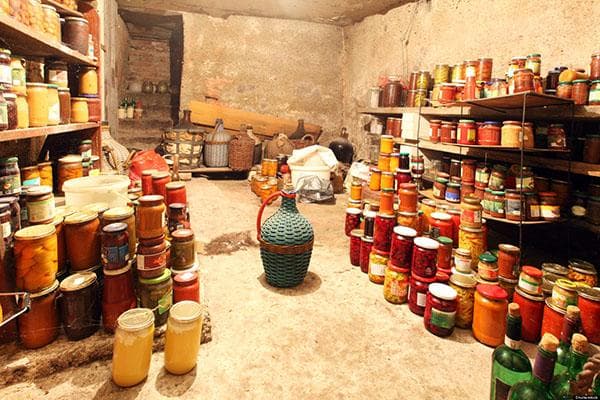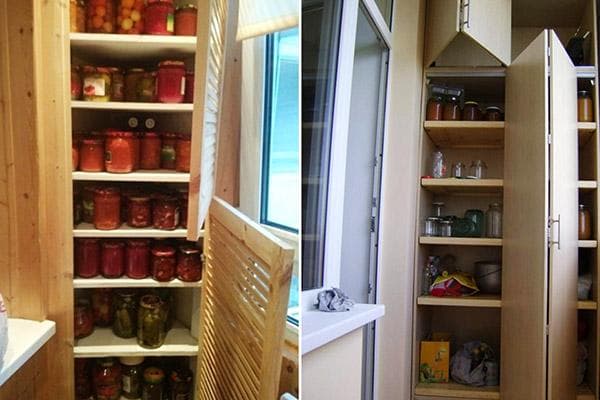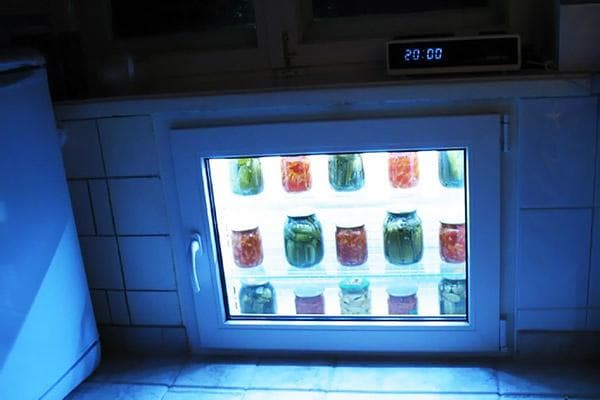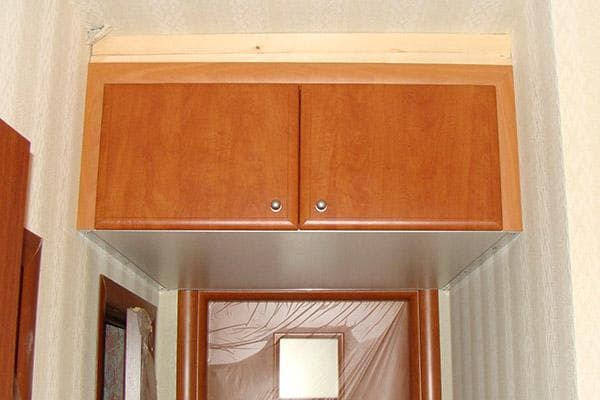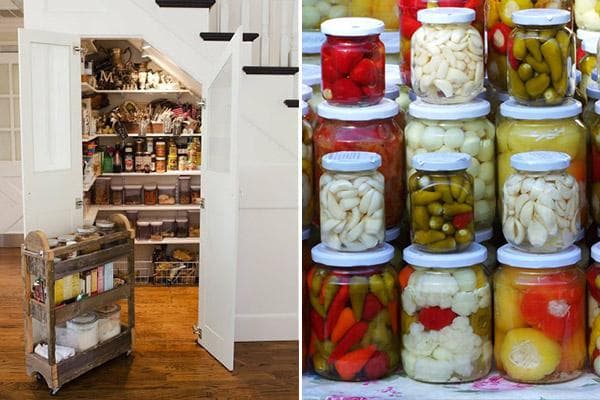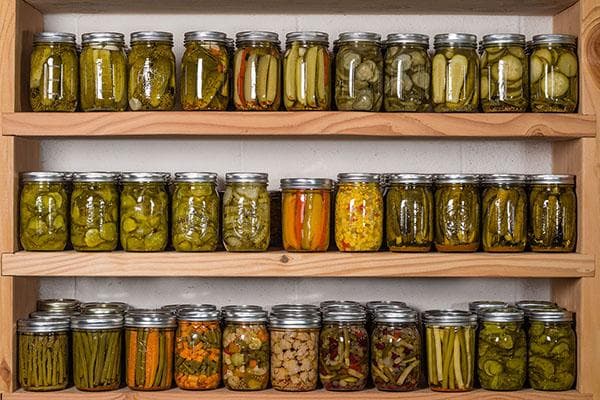Where to store preserved food if there is no cellar?
Content:
Pickles and preserves, prepared by a caring housewife during the ripening period of vegetables and fruits, will diversify the winter diet, replenish the body's vitamin reserves, and remind you of summer. In a private house, it is better to store preserved food in a cellar, basement or boiler room. But in a small apartment, storing workpieces is sometimes associated with many difficulties. After all, the twists should be placed in a cool, dark place and, moreover, not spoil the interior with their colorful appearance.
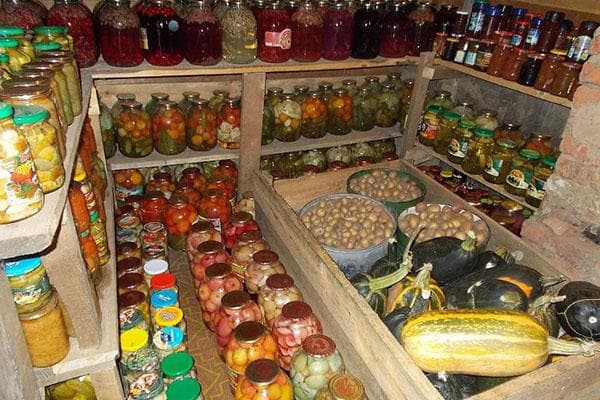
Cellar
A cellar dug in a country house or in a house is the optimal place to store materials, since it is always equally cool and dark here. In a good cellar, even in summer, the air temperature does not rise above +10°C, so jars of compotes and marinades can be stored for two years, and jams even longer.
Usually, owners of underground storage facilities have only one problem with screws - going down the stairs and getting the right jar. Although this issue is very easy to solve if you equip the cellar with shelving or convenient drawers.
Basement
You can store supplies for the winter in the basement only if it is not too humid and the air temperature does not rise above +15 °C. Otherwise, the contents of the cans will deteriorate, and the metal lids will quickly rust.
In modern cottages, the basement space reserved for storing supplies for the winter is specially equipped with a split system. Of course, this is not a very cheap pleasure, but the storage conditions here are observed to within one degree, and it is very convenient to use such storage.
Where to store preserved food in an apartment?
For those who do not have cellars, basements and other premises of this type, you can consider the following options for storing jars with twists in the apartment.
Balcony
A glassed-in balcony or loggia is a great place to store supplies. The main thing is that there are no sub-zero temperatures on the balcony in winter, otherwise the whole twist will freeze and lose its taste. It is also important to ensure that the jars are not exposed to light, especially in the sun. It is better to hide the blanks in a built-in closet, pack them in cardboard boxes or cover them with thick material.
Niche under the window in the kitchen
Many old houses have so-called Khrushchev refrigerators. This is a special niche under the window in the kitchen, where the air temperature is lower than in the apartment. This effect is achieved by reducing the thickness of the outer wall. A built-in refrigerator under the window is an ideal solution for storing preserved food in a small apartment.
Mezzanine
To store cans of preserves, you can use a mezzanine - a shelf above the front door. The main disadvantage of this method is its inaccessibility. Without a stepladder, it is unlikely that you will be able to get the jar you need.
Built-in wardrobe
It is better to build a built-in wardrobe in a place where it is not too hot, for example in the hallway.The structure will take up very little space, but it will be possible to hide all the preserved food and vacated cans in it.
On shelves
Jars of jams and pickles can be placed on shelves inside the kitchen unit. The main thing is not to use boxes located near the oven, since during cooking the air temperature in this place rises sharply.
Workpieces can also be stored on open shelves. To prevent colorful jars from spoiling the interior, they are wrapped in beautiful wrapping paper. Pickles decorated in this way will decorate the kitchen, making the room more cozy.
